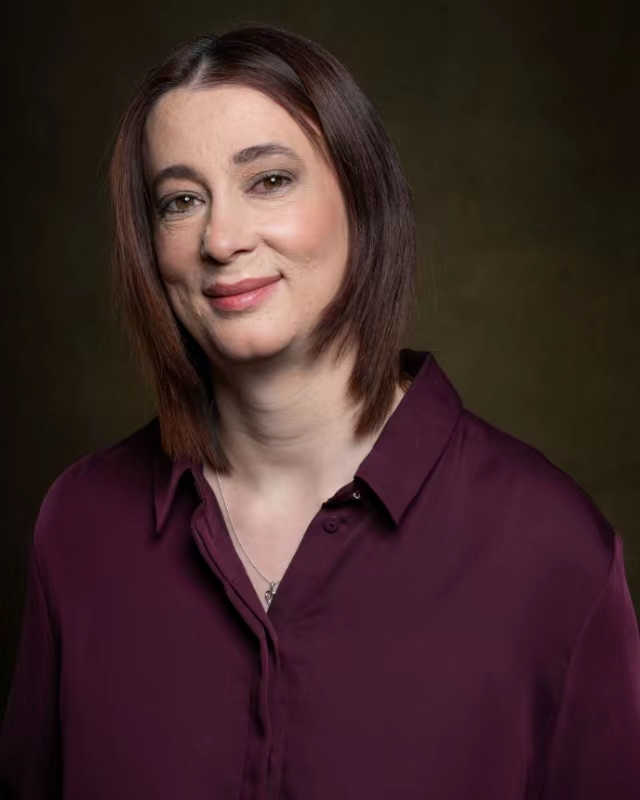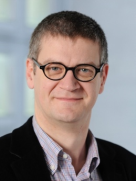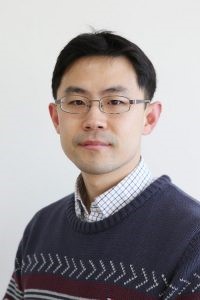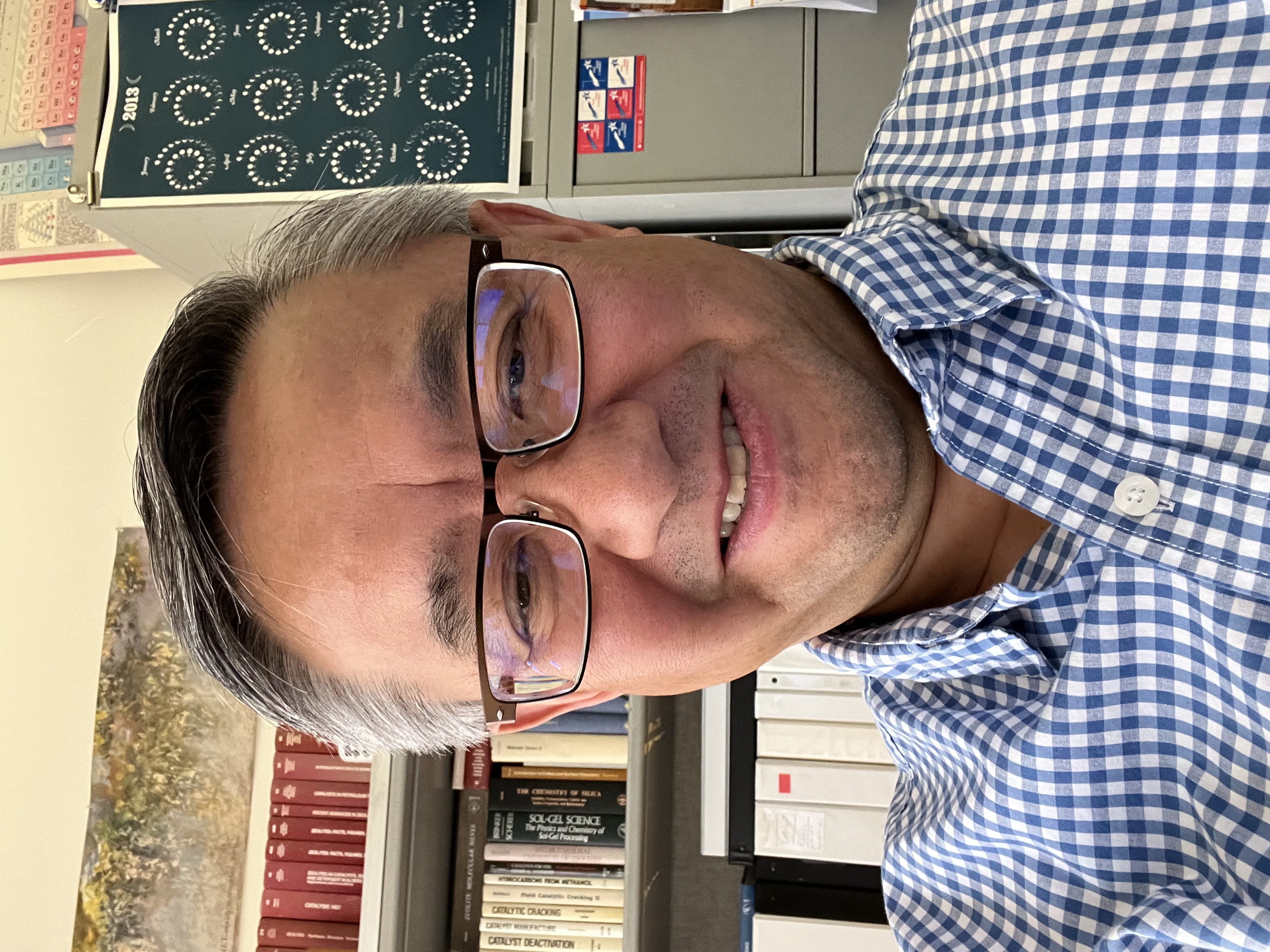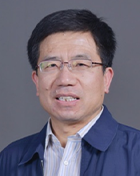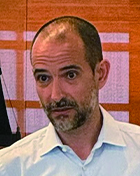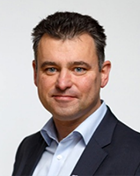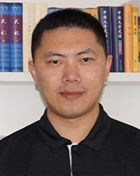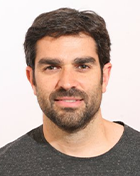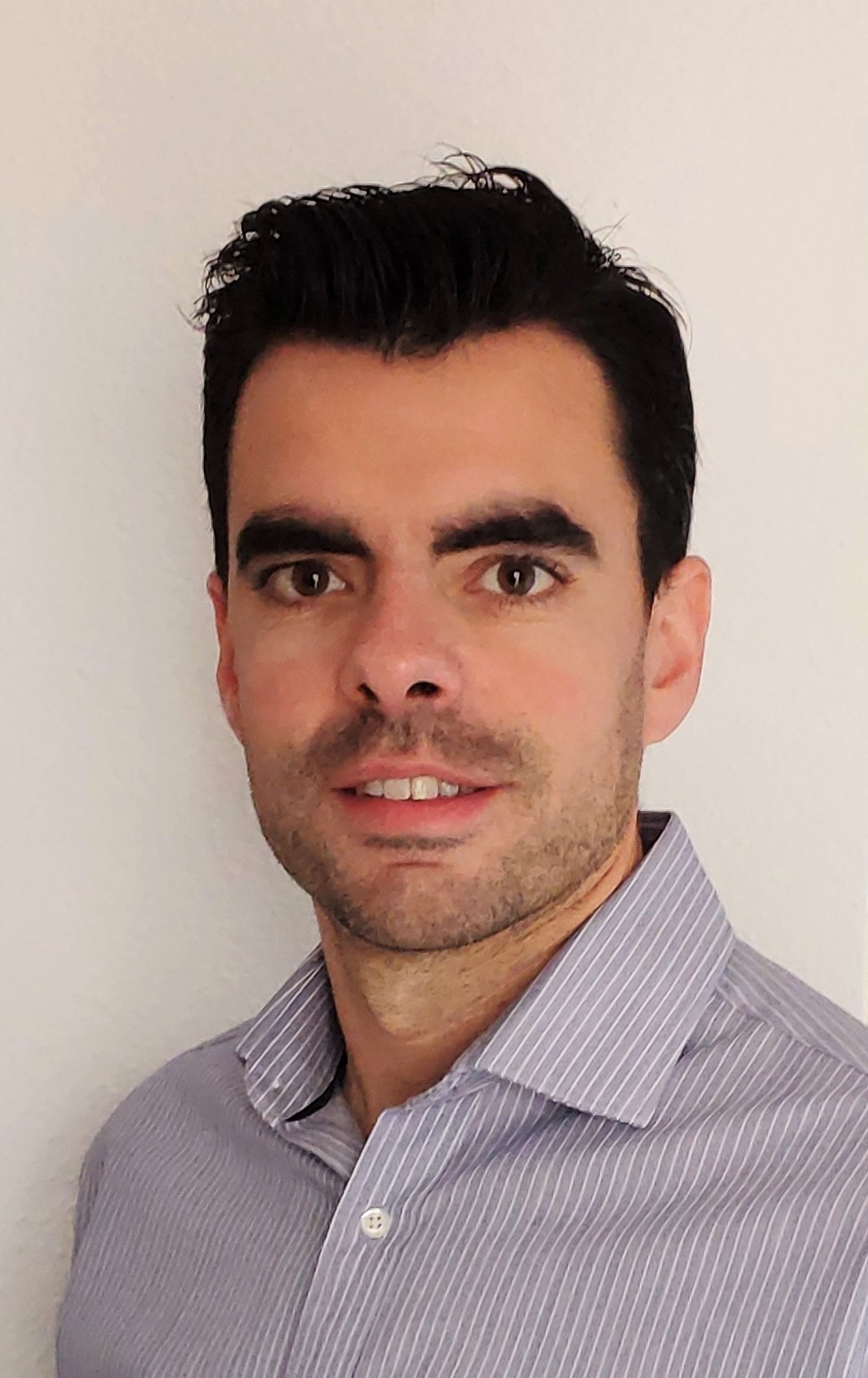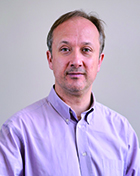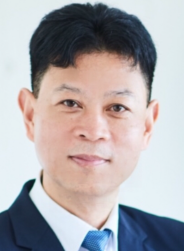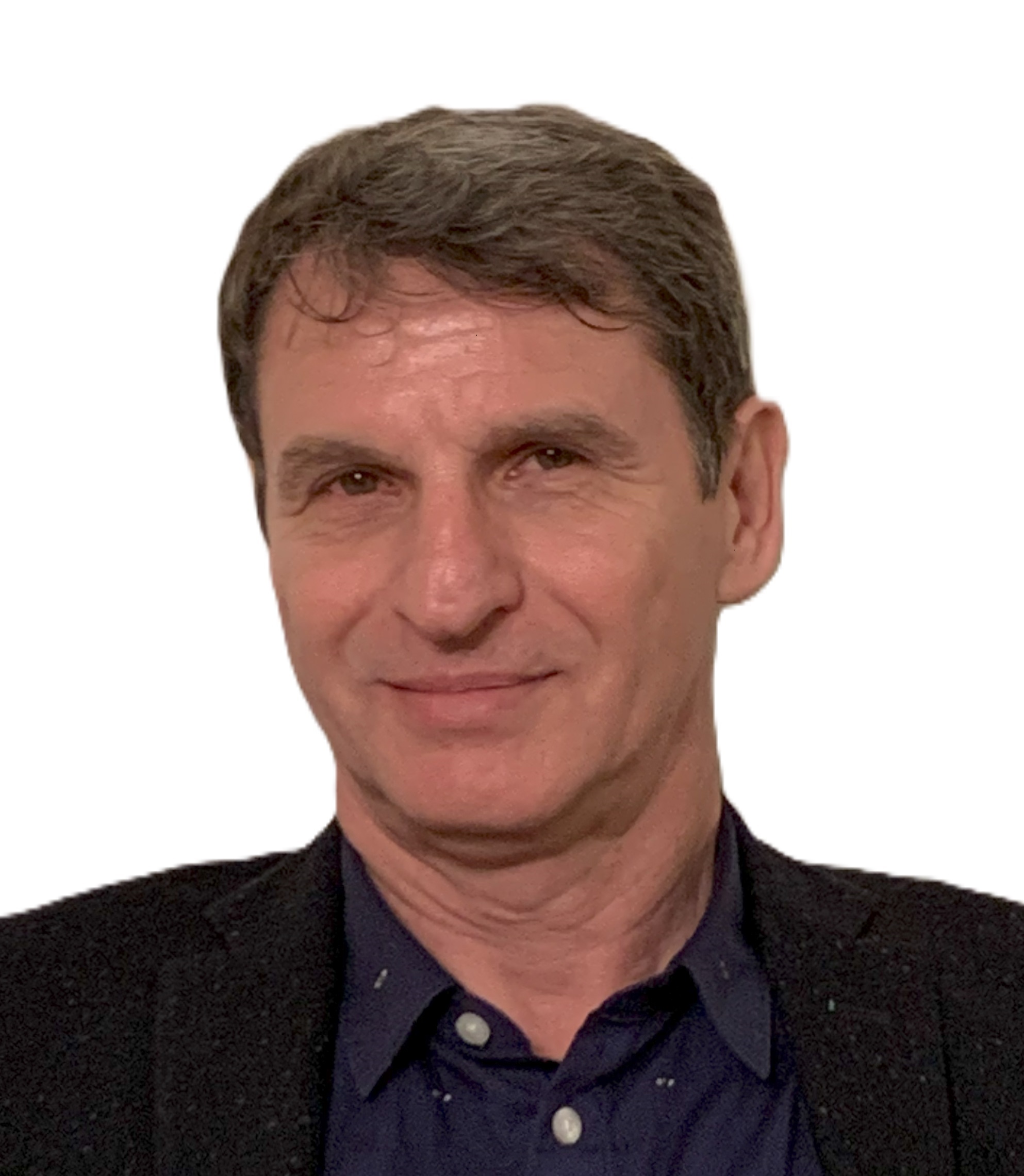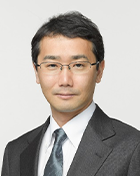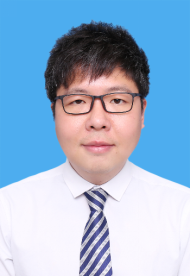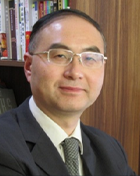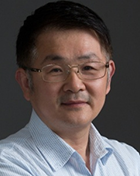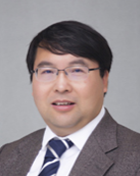|
|
Prof. Sharon Ashbrook University of St Andrews UK Sharon Ashbrook is a Professor of Physical Chemistry at the University of St Andrews UK. Born in Liverpool, she completed a DPhil (2001) at the University of Oxford, before being awarded a Royal Society Dorothy Hodgkin Fellowship in 2003, which she held at the University of Cambridge. From October 2005, she was appointed as an RCUK Academic Fellow in the School of Chemistry at the University of St Andrews, and was promoted to Reader in 2009 and Professor in 2013. | Prof. Christophe Copéret ETH Zurich Prof. Christophe Copéret (CCH) was trained in chemistry and chemical engineering at CPE Lyon, France, and carried out a PhD in chemistry with Prof. E.i. Negishi (Purdue University, USA – 1991-1996), where he investigated the synthesis of complex molecules via Pd-catalyzed carbonylation reactions. After a postdoctoral stay with Prof. K.B. Sharpless (Scripps), CCH was offered a research position at CNRS in 1998 and was promoted CNRS Research Director in 2008. |
|
|
Prof. Minkee Choi Korea Advanced Institute of Science and Technology Minkee Choi studied chemistry and received his B.S., M.S., and Ph.D. degrees from the Korea Advanced Institute of Science and Technology (KAIST) under the supervision of Prof. Ryong Ryoo. Then, he joined the group of Prof. Enrique Iglesia at UC Berkeley as a postdoctoral research fellow. In 2010, he became a faculty member in the Department of Chemical and Biomolecular Engineering at KAIST, and he is now a full professor. | Dr. Cong-Yan Chen Chevron Technical Center Dr. Cong-Yan Chen is a principal scientist at Chevron located in Richmond, California, USA. He is a zeolite scientist by training and has been working at Chevron for the past 30 years in zeolite R&D and related areas covering synthesis, modification, characterization, catalysis, adsorption and commercialization. He received his Diplom in Chemical Engineering from University of Karlsruhe and Ph.D. in Chemistry from University of Oldenburg, both in Germany, after which he was a post doc at Virginia Tech and Caltech in USA. He was also a technical team leader of Chevron’s zeolite synthesis group. He has been an adjunct professor in Chemical Engineering at University of California, Davis since 2012. He was the recipient of the 2020 F.G. Ciapetta Lectureship in Catalysis award of the North American Catalysis Society. |
|
|
Prof. Weibin Fan The Institute of Coal Chemistry, CAS Dr. Weibin Fan obtained his Ph.D at Institute of Coal Chemistry (ICC), Chinese Academy of Sciences in 1998. Then, he moved to KU Leven, Belgium, for a postdoctoral fellowship under the guidance of Profs. R.A. Schoonheydt and Bert M. Weckhuysen. After that, he joined Prof. Takashi Tatsumi’s group of Tokyo Institute of Technology, Japan. At the end of 2007, he returned to ICC and got a full professor position. Now he is the deputy director of ICC. | Prof. Jorge Gascon King Abdullah University of Science and Technology Born in Huesca (Spain) in 1977, Jorge received his MSc. in Chemistry in 2002 and his PhD in Chemical Engineering in 2006, both at the University of Zaragoza (Spain). He was post-doc (2006 to 2009), Assistant Professor (2010 to 2012), Associate Professor (2012 to 2014) and Full Professor (2014 – 2017) of Catalysis Engineering at TUDelft (NL). Since 2017 he is Professor of Chemical Engineering and Director at the KAUST Catalysis Center.Gascon has co-authored over 400 scientific articles and 20 patents. |
| |
Prof. Emiel Hensen Eindhoven University of Technology Emiel Hensen received a Ph.D. degree from Eindhoven University of Technology in 2000. After stints at the University of Amsterdam, Shell Research and Eindhoven University of Technology, he was promoted full professor in Inorganic Materials and Catalysis at Eindhoven University of Technology. He is an editor of Applied Catalysis B. He has published over 650 scientific papers, receiving 40,000 citations with an h-index of 100. His research focuses on the fundamental and applied aspects of catalytic materials relevant to clean and sustainable processes for producing energy carriers and chemicals. | Prof. Yi LI Jilin University Yi Li received his Ph.D. degree from Jilin University in 2006, and joined the State Key Laboratory of Inorganic Synthesis and Preparative Chemistry at Jilin University as a lecturer. He was promoted to associate professor in 2009 and full professor in 2014. His research focuses on the structure design and rational synthesis of zeolitic materials with the aid of high-throughput computations and machine learning. |
| |
Prof. Manuel Moliner Instituto de Tecnología Química Manuel Moliner completed his Ph.D. at the Polytechnic University of Valencia (UPV), in Chemistry, under the guidance of Prof. Avelino Corma and Dr. Maria J. Díaz in 2008, working on the synthesis of new zeolitic structures for their application as catalysts in industrially-relevant chemical processes by using high-throughput methodologies. Afterward, he completed a two-year postdoc (2008-2010) with Prof. | Prof. Álvaro Mayoral Instituto de Nanociencia y Materiales de Aragón (INMA), CSIC Dr. Álvaro Mayoral earned his degree in Chemical Sciences from the University of Alcalá in Spain and completed his Ph.D. at the University of Birmingham in the United Kingdom. Following his doctorate, Dr. Mayoral served as a postdoctoral researcher at the University of Texas at San Antonio (UTSA) until 2010, where he contributed significantly to the development of the Kleberg Advanced Microscopy Center. |
| |
Prof. Russell Morris University of St Andrews Russell Morris was born and brought up in north Wales and is currently Bishop Wardlaw Professor of Chemistry at the University of St Andrews in Scotland. Morris’s research concentrates on the synthesis, characterisation and application of porous materials such as zeolites and metal-organic frameworks. Some of his developments include the use of ionic liquids for the ionothermal synthesis of materials, the ADOR method for the manipulation of zeolites, the use of porous materials to store and deliver medically useful gases, and the incorporation of the technologies into medical devices and chemical processes. | Prof. Christian Serre Centre national de la recherche scientifique Christian Serre got his PhD in Chemistry in 1999 from the University of Versailles, France. After a 1st part of his career at the Lavoisier Institute in Versailles dedicated to create the well-known MIL-n MOF materials, he moved to the Ecole Normale Supérieure and ESPCI within the PSL University, to design new functional porous materials and related composites for health, the environment and energy. |
|
|
Prof. Bao-lian Su University of Namur Fellow of the Royal Academy of Belgium, Fellow of the European Academy of Sciences, Honorary Fellow of the Chinese Chemical Society, Foreign Fellow of the Chemical Industry and Engineering Society of China, Fellow of the Royal Society of Chemistry, UK and Clare Hall Life Member, University of Cambridge, Prof. Su obtained his Dr. Sc. from Université Pierre et Marie Curie, Paris, France in 1992. After a research stay in Catalytica Inc, California in USA, he joined the Faculty of the University of Namur as Associated Professor (1995). He was exceptionally promoted to Professor in 2002 and then again exceptionally promoted to Distinguished Professor (2004). He held a “Chaire Francqui au titre Belge” in 2012-2013. He is also Strategic Scientist of the Wuhan University of Technology and “Guang Biao” distinguished Professor of Zhejiang University. Prof. Su was appointed by French Ministry of Education and Research as President (2020) of the Senior Member Selection Committee of the “Institut Universitaire de France”. He is the President of the International Mesostructured Materials Association since 2021. He received a series of international awards and honors such as, Adolphe Wetrems Prize of the Royal Academy of Belgium in 2007, Distinguished Award for Novel Materials and their Synthesis, IUPAC in 2011, Darsh-Wasan Award of Surface and Colloid Chemistry in 2020 and the International Mesostructured Materials Association (IMMA) Award in 2021 and also some national awards such as The First Prize of Invention Award of Sinopec (1995), The First Prize of the Science and Technology Award, Hubei Province (2019), The First Prize of the Fundamental Science and Technology Award and the China Building Materials Federation and China Ceramic Society (2022).He has published 679 SCI papers with over 34000 citations and an H index of 93. Prof. Su’s current research fields include Pore Science and Engineering for catalysis, photocatalysis, nanotechnology, biotechnology, batteries, energy storage and conversion and cell therapy. | Prof. Valentin Valtchev Normandy University Valentin Valtchev obtained MSc at the University of Sofia (Bulgaria) and PhD at the Bulgarian Academy of Sciences. Currently, he is a Distinguished Professor (Directeur de Recherche Class Exceptionnel) at the Laboratory of Catalysis and Spectrochemistry in Caen, France, and a Visiting Professor at the China Academy of Science. His research involves synthesizing and modifying zeolites and other porous solids for catalysis, separation, and molecular recognition. He has published over 350 refereed journal papers, 29 patents, and delivered over 60 plenary and keynote lectures. Valentin Valtchev is a recipient of the highest recognition of the Federation of European Zeolite Associations - “Baron Axel fon Cronstedt” award (2014) and the highest recognition of the International Zeolite Association - “Donald Breck” award (2016). In 2022, he received the all-carrier award of the International Zeolite Association (IZA), and currently, he is the Ambassador of IZA. Valentin Valtchev was President of the International Zeolite Association in 2016-2019. |
|
|
Prof. Toru Wakihara The University of Tokyo Dr Toru Wakihara received his Engineering degree from the University of Tokyo, School of Engineering in 1999. His undergraduate thesis was A Study of Epitaxial Growth of Zeolite. He completed his Graduate thesis in 2001 on Crystal Growth of Zeolites in Dilute Aluminosilicate Solutions in the Department of Chemical System Engineering, Graduate School of Engineering, University of Tokyo. He completed his doctoral thesis in the same department in 2004 on Elucidation and Control of Aluminosilicate Species Contributing to Zeolite Crystallization. | Prof. Shuao Wang Soochow University Prof. Shuao Wang is the Director of State Key Laboratory of Radiation Medicine and Protection and a Fellow of the Chinese Chemical Society. He received his BSc at University of Science and Technology of China (2007) and PhD at University of Notre Dame (2012). After the postdoc research at University of California, Berkeley, he became a professor of radiochemistry at Soochow University (2013). He is currently engaged in applied research on coordination chemistry of radioactive isotopes, environmental radiochemistry, and radiation chemistry. |
| |
Prof. Ye Wang Xiamen University Professor Ye Wang obtained his Ph.D. degree in 1996 from Tokyo Institute of Technology of Japan. He then worked at Tokyo Institute of Technology, Tohoku University and Hiroshima University and was promoted to Associate Professor at Hiroshima University in 2001. He became a full Professor of Xiamen University in 2001 and served as the director of State Key Laboratory of Physical Chemistry of Solid Surfaces during 2015-2022. Prof. Wang serves as an Associate Editor of ACS Catalysis and is the member of Editorial Board or Advisory Board for many journals.Professor Wang has co-authored about 300 papers with an H-index of 91. The research interest of Professor Wang’s group is Catalysis (including Heterogeneous Catalysis, Photocatalysis and Electrocatalysis) for C1 and Sustainable Chemistry. | Prof. Fei Wei Tsinghua University Director of Beijing key lab of green chemical reaction engineering and technology, Fei Wei obtained his PhD in chemical engineering from China University of Petroleum in 1990. After a postdoctoral fellowship at Tsinghua University (China), he was appointed an associate professor in 1992 and professor of chemical engineering of Tsinghua University (China) in 1996. His scientific interests are technological applications of chemical reaction engineering, catalysis, multiphase flow, carbon nano materials, and sustainable energy. He has designed and successfully running over 30 industrial fluidized bed reactors, and authored four books and over 600 refereed publications including 4 papers in Science and Nature, with more than 60000 citations with H index 115. |
|
|
Prof. Mao Ye Dalian Institute of Chemical Physics, CAS Mao Ye is chair professor of chemical engineering and group leader of Catalytic Process Development and Scale-up in DICP. He received his Ph.D. from Southeast University in Nanjing in 2000. Before taking current position, he had been working with Twente University, Eindhoven University of Technology and Shell Global Solutions International in the Netherlands. He is interested in catalytic reaction engineering and so far contributes to about 160 publications and 300 patents. |
To be continued.

